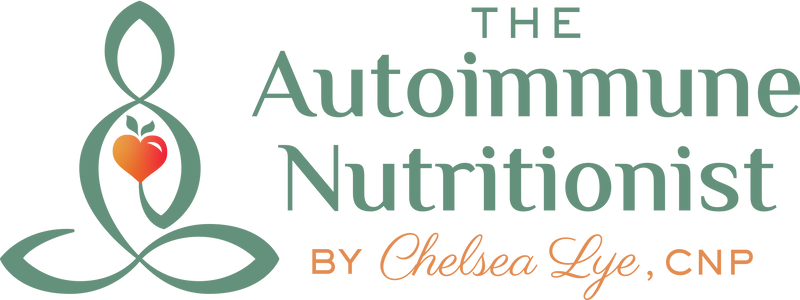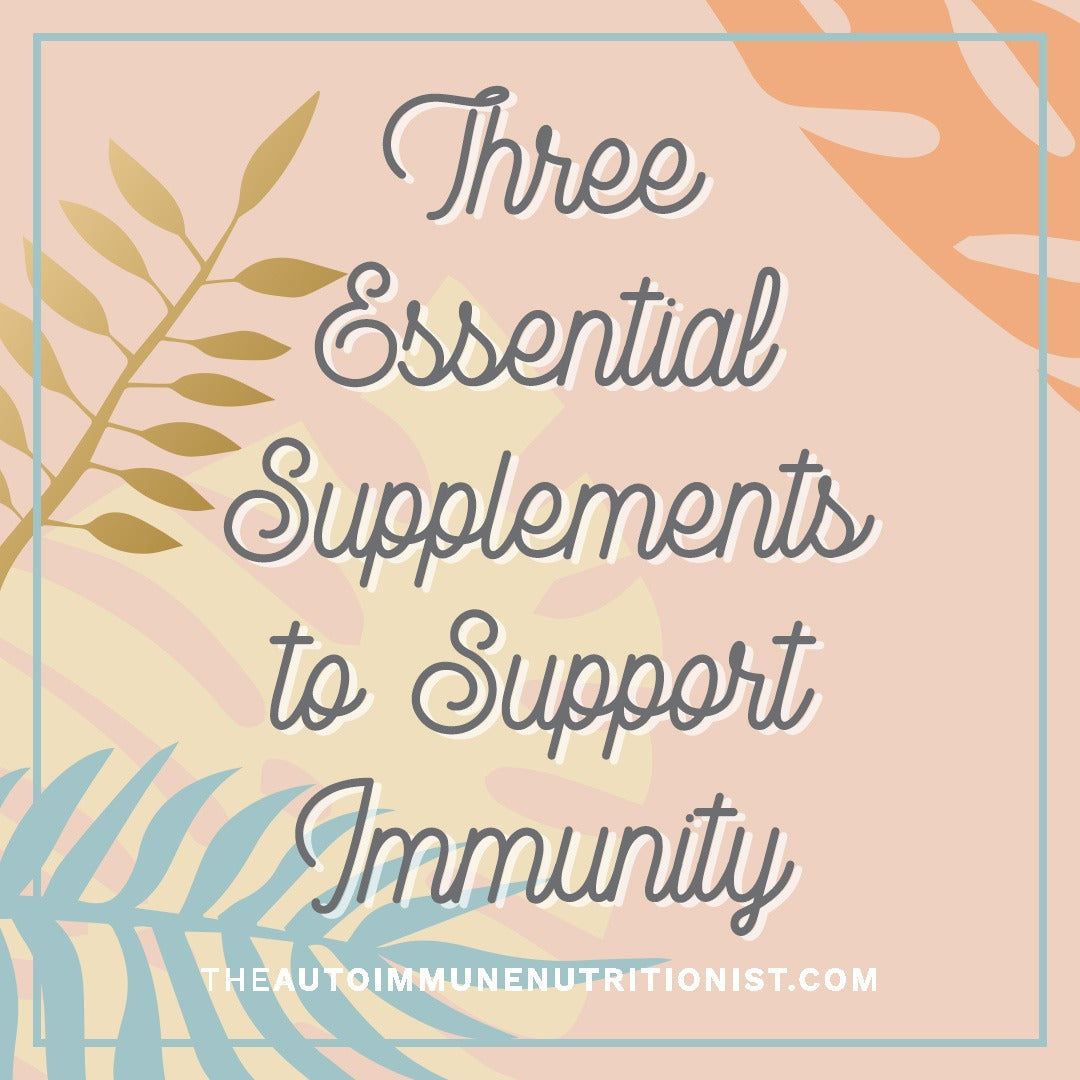
Three essential supplements to support immunity
A top question coming in from my clients and readers as we enter the cold and flu season (and navigate Covid-19) is “what supplements do I need to be taking to support a healthy immune system”?
This is a great question, and there are definitely crucial vitamins and minerals that are essential in supporting a healthy immune system. And the scary part is, most people are walking around with deficiencies in these essential vitamins and minerals!
Wondering if you can get all of the nutrients you need from food? In a perfect world, yes, you would not need to take nutritional supplements and you would get everything you need from your food.
However, most Americans eat a nutrient-poor diet. And sadly, even those who do eat the necessary amount of vegetables and fruit often have nutritional deficiencies because our soil isn’t as rich in vitamins and minerals as it used to be1 .
Other factors for the decline in nutrients of our food include the storage and transportation of our produce as well as the prevalence of genetically modified foods. On top of all of this, we require more nutrients than ever before. We need more nutrients to meet the increased demands put on our bodies due to our toxic living environment.
For these reasons, taking nutritional supplements is essential for most people and can help fill in the gaps from what you aren’t getting from your diet. Adding a few immune-boosting supplements to your routine can be incredibly beneficial. The following essential vitamins and minerals have been proven to fine-tune immune function, enhance antibody production, and alleviate inflammation!
Vitamin C

Vitamin C might be the most well-known immune support vitamin of them all due to its ability to improve immune health.
Studies have repeatedly confirmed the immune-boosting benefits of vitamin C. Since we cannot synthesize our own vitamin C, it is crucial that we get enough of it in our food or through supplementation.
Effective Anti-inflammatory and antioxidant
Antioxidants are compounds that play a central role in health and disease.
Vitamin C has Powerful Antioxidant Properties and acts as an antioxidant within certain immune cells. These immune cells help fight disease-causing free radicals, minimizing oxidative stress and damage to the body. They also also create reactive oxygen species to kill pathogens (foreign invaders to the body) 2.
Helps shorten the duration and reduce symptoms of the common cold
A 2006 trial in Annals of Nutrition & Metabolism found that vitamin C helps decrease symptoms and shorten the duration of respiratory infections such as the common cold 3.
Effective at reducing impact of bacterial and viral infections
Many studies have shown that vitamin C reduces the impact of both bacterial and viral infections, including lung inflammation4 , influenza, and pneumonia5 .
Treats and prevents chronic health conditions
Studies have shown that vitamin C and other antioxidants aid in the treatment and prevention of multiple chronic conditions, including heart disease, autoimmune disorders and even cancer6 .
Vitamin D

Vitamin D is one of the top immune system booster vitamins and is involved in many aspects of health. It has been studied extensively over the past several years. There is now considerable evidence that suboptimal vitamin D status is associated with compromised immunity and increased infection risk.
Not only is vitamin D3 integral to the function of immune cells in the body, but a deficiency in this crucial micronutrient can actually increase the risk of infection 7. Increased susceptibility to infection is one of the hallmark signs of Vitamin D deficiency.
.Reduces infection of colds and flu
Studies have shown that people with vitamin D deficiency are 11 times more likely to get a cold or flu, while supplementing with vitamin D can reduce colds and flu by 42 percent8.
Reduces risk of upper respiratory infection
A meta-analysis showed that daily vitamin D supplementation (400IU to 4000IU daily, average 1600IU) decreased risk of upper respiratory infection by 49%9.
Deficiency linked to development of Autoimmunity
Studies have also shown the association between vitamin D deficiency and autoimmune diseases, demonstrating higher prevalence of vitamin D deficiency among autoimmune patients, in comparison to the general population10.
Zinc

Widely considered one of the most effective immune-boosting supplements, Zinc is needed for both the development and function of immune cells.
Research shows that Zinc is critical to support immune system function and regulation11.
Like vitamin C, Zinc is not synthesized or stored in the body, so regular consumption of Zinc is essential for an optimal immune system
Significantly reduces duration and symptoms when taken at onset of cold symptoms
A study in 2013 found that when zinc supplements were administered within 24 hours of onset of cold symptoms, the duration of symptoms was significantly reduced compared to the control group that did not supplement with it12.
Reduces the incidence of developing a cold or flu if taken daily
In addition to reducing duration and symptoms when administered within 24 hours of the onset of a virus, ongoing supplementation with Zinc reduces the incidence of developing a cold.
In a 2006 clinical trial , children were given Zinc (as Zinc Sulfate, 15mg daily increased to 30mg at the onset of a cold) and followed for seven months. The number of colds in the zinc group was 30% lower than in the control group. Those in the zinc group developed a cold had a shortened duration and reduction in the severity of symptoms vs. the control group13.
Effective Anti-inflammatory and antioxidant
Zinc is an effective anti-inflammatory and antioxidant agent, helping fight oxidative stress and decreasing the chance for disease development.
A study looking at potential benefits from zinc supplements at the University of Michigan School of Medicine uncovered that oxidative stress markers were significantly lower in the supplemented group than in the placebo group. The incidence of illness-related side effects and infections was also significantly lower in the supplemented group14.
Lifestyle habits to support immunity
In addition to getting the correct nutrients from foods and supplements, healthy lifestyle habits are critical to a healthy immune system.
Healthy lifestyle habits to support immunity include;
• staying hydrated (water helps produce lymph which carries WBC’s and other immune cells)
• getting enough rest
• managing stress
• living an active lifestyle (while avoiding overtraining)
• Eating a healthy diet

Hi, I’m Chelsea Lye, CNP!
I’m a Certified Nutritional Practitioner, AIP Coach and Yoga teacher showing you how to balance your hormones and reverse autoimmunity naturally.
Shop Supplements
Shop our selection of professional-grade supplements, carefully selected to optimize healing without any immune-stimulating ingredients
shop now


